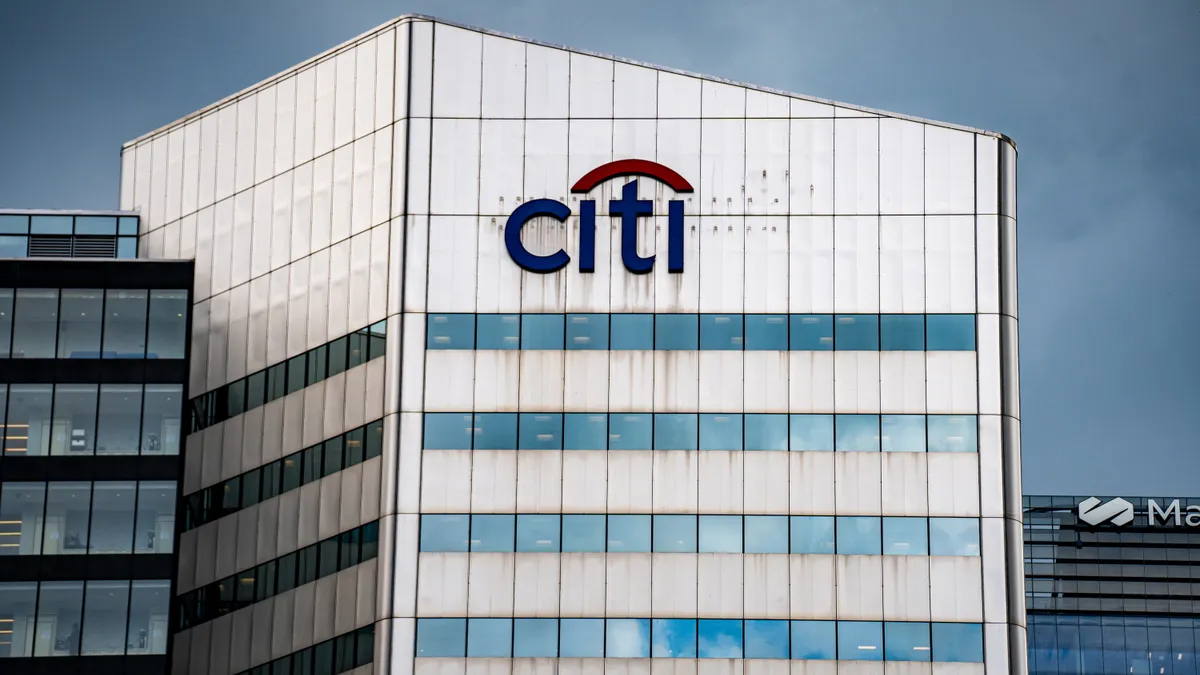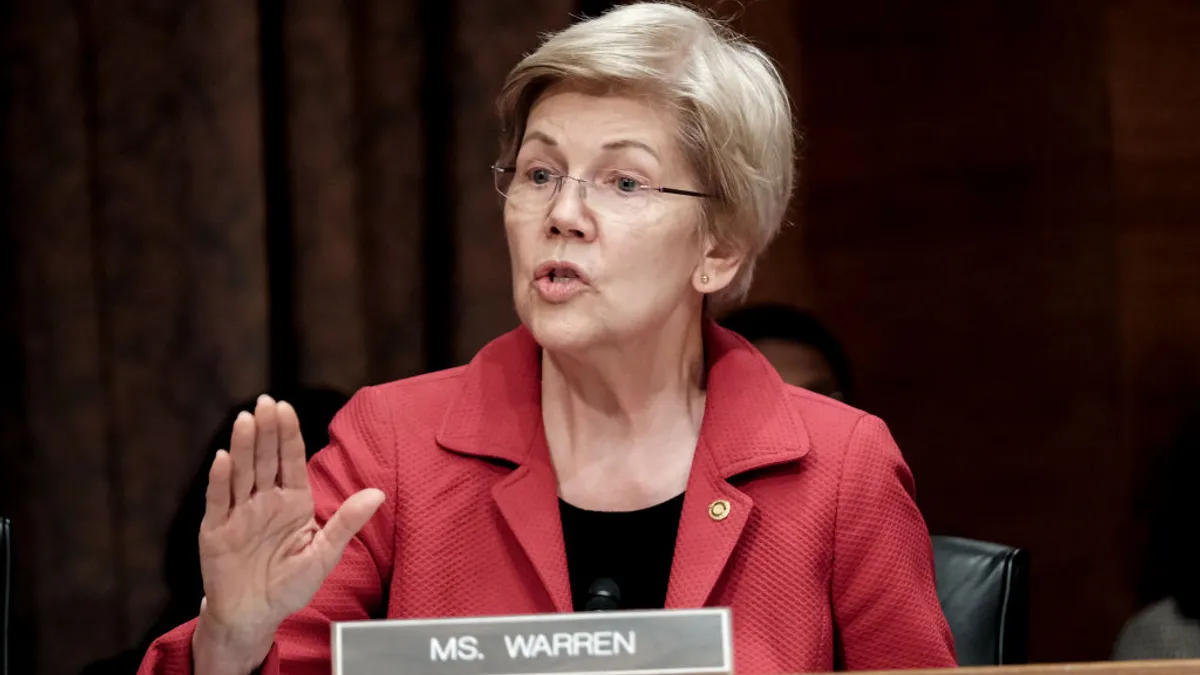Citi on Wednesday clarified some of the compensation data it published in connection with Vis Raghavan, the head of banking the lender hired away from JPMorgan Chase last year.
At issue was $52.25 million in awards that Glass Lewis criticized as inadequately explained, prompting the proxy adviser to recommend that Citi’s shareholders vote against the bank’s compensation proposal, according to Bloomberg.
So Citi itemized the $52.25 million, breaking it down to $39.38 million in deferred equity and $12.87 million in deferred cash, and asserting the awards “mirror the deferred compensation [Raghavan] forfeited by reason of his decision to join Citi.”
“We replaced deferred equity awards granted to Mr. Raghavan by his prior employer, where he had been employed for over 20 years, with respect to 263,447 shares of his prior employer’s stock,” Citi wrote.
Raghavan will receive deferred equity in six annual installments of decreasing value from 2026 to 2031, Citi said. The time frame “reflects the deferral periods that were required by U.K. regulators for the forfeited awards received from his prior employer, as Mr. Raghavan was also asked to relocate to New York from London upon joining Citi,” the bank added. The equity schedule also is meant to incentivize Raghavan to stay at Citi until at least June 2029, the bank noted.
The cash award, meanwhile, is set to be paid next week, the bank said.
“Our ability to recruit industry leaders to the firm and to retain our own talent depends on our ability to convincingly communicate a vision for our organization and the opportunity for success in the near term,” Citi said in its filing Wednesday.
“Our recent successes in recruitment and retention are attributable in significant part to [CEO Jane] Fraser’s having communicated such a vision,” the bank added, citing its 2023 hiring of wealth chief Andy Sieg from Bank of America.
Citi on Wednesday also disclosed Raghavan’s $22.6 million in compensation for 2024, noting the “amount was also agreed with him prior to his hire in order to incentivize him to join Citi’s leadership team.”
The explanation was apparently enough to change Glass Lewis’ recommendation.
“Although wary of the sizeable sign-on awards to Mr Raghavan, the supplemental proxy material filed by the company provides a meaningful discussion,” the adviser wrote in an updated note Thursday seen by Bloomberg. “As such, a vote against the proposal is not fully warranted.”
Bank of America
Citi is hardly the first big U.S. bank – even this proxy season – to weather roadblocks from Glass Lewis. Compensation, especially, has been a recurring sticking point with the proxy adviser.
Glass Lewis last month urged Goldman Sachs investors to reject twin $80 million retention bonuses the bank is paying its two top executives, CEO David Solomon and President John Waldron. The proxy adviser labeled the bonuses “excessive,” adding that the bank’s “provided discussion regarding the rationale in the proxy statement is far from robust.”
Glass Lewis isn’t alone in its criticism of bank pay. Fellow proxy adviser Institutional Shareholder Services recommended that shareholders of Bank of America reject the bank’s compensation proposal, Reuters reported Friday.
BofA CEO Brian Moynihan’s $35 million in compensation for 2024 represents a 21% increase from the previous year, which ISS said "appears directionally aligned with company performance."
But the bank failed to adequately detail its process for determining Moynihan’s short-term incentive, ISS said. That "inhibits a fulsome assessment of pay program rigor and the reasonableness of the specific pay determinations," the proxy adviser said.
A Bank of America spokesperson pointed to the lender’s proxy filing, in which it credited Moynihan with leading the bank through a 2.3% increase in net income from 2023 and a 3.4% jump in revenue over the same period.
In contrast to ISS, Glass Lewis recommended that BofA shareholders support the bank’s compensation proposal.
The proxy advisers have long served as thorns in the side of some leading bank executives. JPMorgan Chase CEO Jamie Dimon called out the “undue influence” of ISS and Glass Lewis in his letter to shareholders last April. (Dimon issued his latest annual shareholder letter Monday.)
ISS and Glass Lewis in 2022 urged JPMorgan shareholders to reject a $52 million retention award the bank set out for Dimon. (Shareholders did, in fact, vote down the proposal, but the bank paid Dimon anyway.)
There’s been no love lost between Dimon and the proxy advisers. The JPMorgan CEO blasted Glass Lewis and ISS in March at a conference, calling them “incompetent.”
“They should be gone and dead, done with,” he said.
Morgan Stanley
Morgan Stanley, meanwhile, disclosed Friday that it paid James Gorman $27 million for 2024 – a year in which he served as the bank’s executive chair but not CEO. (He stepped down at the end of 2023.)
In justifying the compensation, Morgan Stanley said Gorman “act[ed] as a mentor [and] sounding board,” and helped CEO Ted Pick become chair at the start of 2025. The bank also credited Gorman for the CEO transition in 2023 – “successfully accomplish[ing] an orderly, multi-year CEO succession planning process that demonstrated the quality and depth of the Firm’s leadership talent that was retained.”
Notably, Morgan Stanley retained Andy Saperstein and Dan Simkowitz, the runners-up in the CEO race that Pick won. For 2024, Gorman received compensation equal to Simkowitz and Saperstein. That accounts for a $1.5 million salary, a $12.75 million cash bonus and another $12.75 million of performance-based incentive compensation, according to Friday’s filing. Gorman received no restricted share units for 2024.
Banking Dive has not seen any commentary from Glass Lewis or ISS on Morgan Stanley’s compensation plan. But criticism by the proxy advisers is a possibility. The firms urged the bank’s shareholders last year to vote against a compensation plan that included one-time $20 million awards to Simkowitz, Saperstein and Pick – meant as a retention measure.
Gorman’s 2024 pay is $10 million less than the $37 million he received a year earlier as both CEO and chair. Other large U.S. banks that consolidate their CEO and chair roles pay at similar levels. Dimon and Solomon, at JPMorgan and Goldman Sachs, respectively, received $39 million each for 2024. Moynihan, mentioned earlier, received $35 million.
But similarly sized banks that separate their chair and CEO roles pay their chairs far less than the $27 million Morgan Stanley paid Gorman in 2024. Citi Chair John Dugan received $725,000 for the year, while Wells Fargo paid $590,703 to its chair, Steven Black, according to Bloomberg.
For reference, Gorman is set to receive $400,000 from Morgan Stanley in 2025 for his role as a non-employee adviser. He is, however, concurrently serving as the board chair at Disney.




















